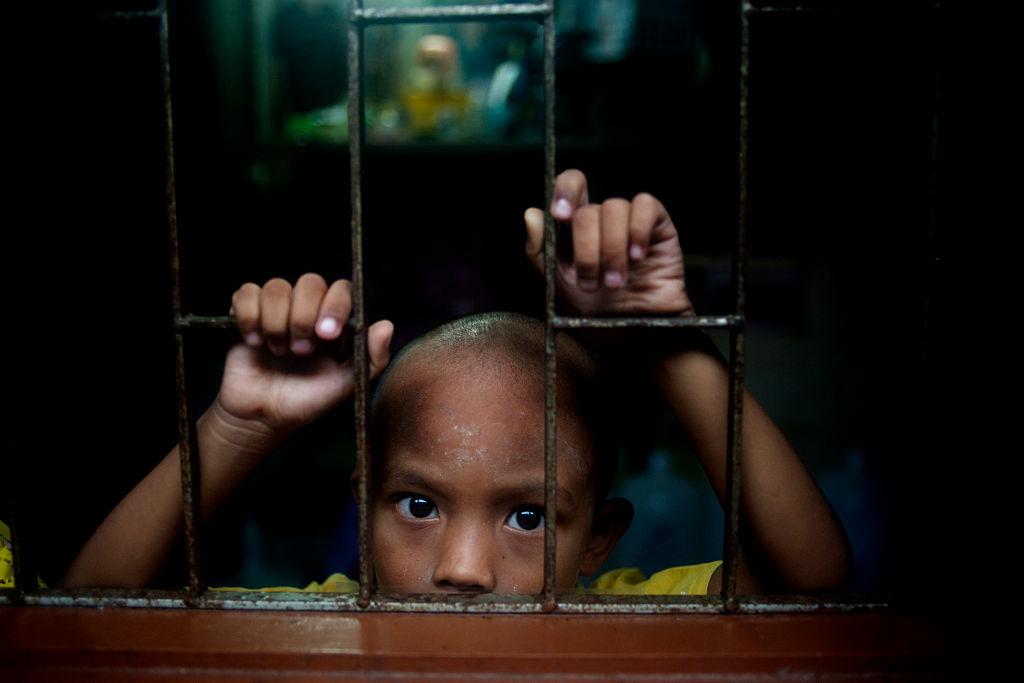Eradicating modern slavery: lessons for Australia and the region
Posted By Lorraine Finlay and Jennifer Katrib on October 6, 2022 @ 13:00

Australia has long positioned itself as a leader in the global effort to eradicate modern slavery. Two reports released in the past three months highlight both the importance of this leadership to Australia’s broader strategic goals and the increased urgency of the challenge that lies ahead. While the eradication of modern slavery is a moral imperative in its own right, the issue is also one of (often underestimated) significance for Australia’s strategic interests in the Asia–Pacific.
The 2021 Global estimates of modern slavery report [1], published last month, shows that—despite a global focus over the past decade—the problem of modern slavery is actually getting worse, not better. While the challenges of obtaining reliable estimates of the true extent of modern slavery are well known [2], the report (which was developed by the International Labour Organization, Walk Free and the International Organization for Migration) provides one of the best available insights into the extent of the problem. The findings are sobering. Nearly 50 million people are estimated to be living in situations of modern slavery on any given day, an increase of about 10 million people since the last report was released four years ago.
Despite the world making a clear commitment [3] to eradicate modern slavery and human trafficking by 2030, we have actually gone backwards over the past few years. The Global estimates report identifies the impact of compounding crises—including the Covid-19 pandemic, armed conflicts and climate change—as leading to an increase in a range of vulnerability factors. These findings squarely highlight the enormity of the challenge that lies ahead.
The strategic importance for Australia is underlined by another recent report, the 2022 Trafficking in persons report [4], released in July by the US State Department. The goal of this annual publication is to solidify the global effort to combat human trafficking. The report provides a detailed account of 188 countries’ efforts to hold perpetrators accountable, provide survivor services and prevent trafficking in persons. Countries are ranked into one of four tiers, reflecting the extent of government efforts to address the issue of human trafficking.
On the surface, the report presents a positive picture of the work being done in Australia. It does identify some important areas of improvement and offers prioritised recommendations to strengthen Australia’s response. These include stepping up efforts to proactively identify trafficking victims among vulnerable groups, providing alternative referral pathways for victims to delink support from participation in the criminal justice process, and establishing a national compensation scheme for trafficking victims. Importantly, Australia maintained its Tier 1 ranking, meaning that the Australian government is considered to fully meet the minimum standards for the elimination of trafficking.
In our immediate region, however, the report presents a more mixed picture and a significant strategic challenge for Australia. In East Asia and the Pacific, it documents a steady decline in prosecutions, convictions and identified victims, and in the introduction of new or amended legislation, over the past five years. Besides Australia, only a handful of countries in the region are ranked in Tier 1, including the Philippines and Singapore. Most others are in either on the Tier 2 watch list or in Tier 3, including Brunei, Cambodia, Indonesia, Malaysia, Myanmar and Vietnam. These rankings reflect an assessment that those countries don’t fully meet the minimum standards for the elimination of trafficking and, in the case of countries with a Tier 3 ranking, aren’t making significant efforts to do so.
Foreign Minister Penny Wong reiterated the importance of ASEAN and Southeast Asia to Australia’s future in a recent lecture, declaring [5]: ‘What happens in, to and through this region will be strategically central to Australia’s future.’ A stable and prosperous region, and one that respects the rules-based international order, is undoubtedly in Australia’s strategic interests. If modern slavery is persisting in the region—or even growing, as suggested by the Global estimates report—Australia should be concerned not only because modern slavery itself is abhorrent, but also because its presence is a result of factors such as growing poverty and displacement that weaken and destabilise the region overall.
Given the regional commitments that have been made to eliminating human trafficking—the ASEAN Convention Against Trafficking in Persons, Especially Women and Children [6] is one key example—the lack of sustained progress in some countries might also raise doubts about the extent to which respect for the rules-based international order is translating from principle to practice.
Australians also need to consider the not insignificant role that we ourselves play in driving modern slavery in the region. Australian businesses, consumers and investors choosing to make ethical decisions about the products they purchase and the investments they make could have a significant impact on the regional drivers of modern slavery, particularly in terms of labour exploitation.
Continuously strengthening our efforts to combat both child sex tourism and online child sexual exploitation is also essential. The Trafficking in persons report highlights increased incidents of online child sexual exploitation during the pandemic, and the continued involvement of Australians in child sex tourism in countries such as Cambodia, Laos and the Philippines.
Both reports emphasise the ongoing urgency of the global fight against modern slavery and human trafficking. Eradicating modern slavery should be a focus for Australia simply on the basis that it is the morally correct thing to do. It is also, however, clearly in our strategic interests given the importance of a stable and prosperous regional neighbourhood to Australia’s future.
Article printed from The Strategist: https://aspistrategist.ru
URL to article: /eradicating-modern-slavery-lessons-for-australia-and-the-region/
URLs in this post:
[1] Global estimates of modern slavery report: https://www.walkfree.org/reports/global-estimates-of-modern-slavery-2022/
[2] well known: https://www.aic.gov.au/sites/default/files/2020-05/sb_human_trafficking_050219.pdf
[3] clear commitment: https://sdgs.un.org/goals/goal8
[4] Trafficking in persons report: https://www.state.gov/wp-content/uploads/2022/08/22-00757-TIP-REPORT_072822-inaccessible.pdf
[5] declaring: https://www.foreignminister.gov.au/minister/penny-wong/speech/special-lecture-international-institute-strategic-studies-shared-future-australia-asean-and-southeast-asia
[6] ASEAN Convention Against Trafficking in Persons, Especially Women and Children: https://asean.org/asean-convention-against-trafficking-in-persons-especially-women-and-children/
Click here to print.